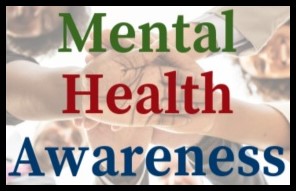
Our Mental Health Awareness series continues with a discussion of one of the most common mental illnesses, opens a new window in the United States: major depressive disorder, often simply called depression.
What is it like to have depression? You may feel hopeless or lethargic for no particular reason. Sometimes you start to cry and can't stop. Things that used to make you happy don't seem to matter anymore. You may feel like you're worthless, numb, or tired all the time. Perhaps you have difficulty sleeping, or you feel like you need to sleep all the time. Your appetite may disappear, or you may be eating too much. Maybe you feel aches and pains that have no specific cause. You don't know how to make these terrible feelings go away. They're overwhelming and affecting every aspect of your life. Overall it's difficult, if not impossible, to face the world.
No two people experience depression exactly the same way, although there are some discernible symptoms. For a more complete explanation of the symptoms of depression, see the National Institute of Mental Health 'Depression' page, opens a new window. If you are experiencing any of these symptoms for more than two weeks, please don't dismiss them. Depression isn't something that you can just 'get over.' It isn't possible to just 'cheer up' and 'move on.' When you're depressed, you are probably less likely to want to seek help, but getting help is important. Depression is a serious health concern which, for some of us, can result in severe impairment that interferes with or limits our ability to carry out daily activities. There is help available. Depression is very treatable. Make an appointment to talk to a physician or another healthcare professional.
Your life matters. If you need immediate help due to feelings or symptoms of depression, please call the National Suicide Prevention Lifeline at 1-800-273-8255, opens a new window or text HOME to 741741, opens a new window. Needing immediate help doesn't necessarily mean you are planning to commit suicide. It could be that you're having a difficult time and don't know where to turn for support. Either way, there are people out there who want to help you.
Most people who are experiencing symptoms of depression (or any kind of difficulty, really) are far more likely to confide in a close friend or family member than to seek help from a healthcare professional. If someone you know has confided in you about having symptoms of depression, they may find it nearly impossible to get help by themselves because they're depressed and in pain. Your friend or family member will need your encouragement. Please reassure them that it's OK to seek medical help.
We have compiled a list of St. Tammany Parish Library materials and external websites that may be helpful for those of us who are dealing with depression:



Add a comment to: Mental Health Awareness: Depression